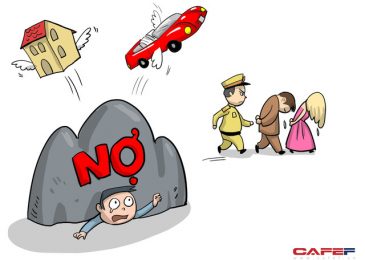AA: I’m Avi Arditti with Rosanne Skirble, and this week on WORDMASTER: expanding on reductions. When speakers compress a phrase like “going to” into “gonna,” or “what do you” into “whaddaya,” that’s a reduction. We mentioned their importance when we talked last week about the natural rhythms of spoken American English. To explain more, we found a segment we did with Slangman David Burke where he talked about reductions.
Listening online or download MP3
DAVID BURKE: “One of them is ‘you.’ Instead of saying you, we just say ya. Instead of saying `How are you?’ [we say] `How are ya?’ If I were to say to you ‘Didja eat yet?’ and you replied `No, didju?’ we would understand that. ‘Didja eat yet?’ Did you eat yet?
“We talked about ya which is a reduction of you, but after the letter d the you or the ya becomes a ‘ja’ sound always after the letter d. `Would you like to come to the movies?’ `Wouldja like to come to the movies?’ `Did you eat?’ `Didja eat?’ And, for some reason after the letter t the ya becomes ‘cha’ — `I’ll let you come with me.’ `I’ll letcha come with me.’ `What’s that you have in your hand?’ `Whatcha have in your hand?’ So, we have about four different ways of saying `you’ which is ‘ya,’ ‘ja,’ ‘cha’ and even ‘ju.'”
AA: “This is spoken English, right? Now if you were writing a report or something for work, you would want to be more careful about using the formal non-reduced forms.”
DAVID BURKE: “Absolutely. But, I would have to say yes and no, because reductions are used typically in speaking; however, a lot of times when we are writing to friends or especially in comic books we’ll see the reduced form.
“True, in a formal report, you do not want to use reductions, but when we are writing a letter to somebody we might say in the beginning of the letter `How are ya?’ and spell y-a for ya. That’s pretty common.”
AA: “Also on the most-often-heard reduction list are the reduced forms of going to and want to. They become gonna, g-o-n-n-a, and wanna, w-a-n-n-a.”
RS: “As in ‘I’m gonna be late,’ or ‘Do you wanna go with me?'”
DAVID BURKE: “And what’s a little bit difficult to understand about `gonna’ [is that] `gonna’ is the reduction of `going to’ only when it is something that is happening in the future.
“But when it indicates going from one place to another you cannot reduce it. For example, `I’m going to the movies tonight.’ You can’t say `I’m gonna the movies tonight.’ Or `Are you going to the market?’ You can’t say ‘Are you gonna the market?’ So, it’s only used to indicate the future, and it’s really popular.”
AA: “Sometimes, when reduction takes place, two different words are reduced to the same sound.”
RS: “That happens with ‘and’ and ‘in’.”
DAVID BURKE: “‘And’ is pronounced ‘n’: `Rosanne n Avi.’ The word `in’ — ‘Let’s go inside’ — it’s pronounced absolutely the same. `Put the pencil ‘n’ the box.’ It sounds like `Put the pencil and the box.'”
AA: “So someone coming to this country who is not used to the fast-speaking ways of your average American is going to be confused by these `wannas, gonnas — “
RS: “Can’t ya, don’tcha.”
DAVID BURKE: “Absolutely. In fact just now you said a very common reduction, `used to’ – `usta’ means to be accustomed to, to be acclimated to. I’m usta getting up early. He usta be my best friend. We would never say `used to.'”
RS: “The question I have for you is that given the fact that Americans speak with reductions, how do people who speak English as a foreign language learn to tell the difference? How do they learn these reductions?”
DAVID BURKE: “The only way they can learn is to live in this country, and of course when they arrive they will be absolutely shocked and all of a sudden someone comes up and says, `How do ya do?’ not `How do you do?’ They are stunned.”
AA: Slangman David Burke, talking about reductions in a segment from two thousand. You can learn about his language teaching materials at slangman.com. And that’s WORDMASTER for this week. Archives are at voanews.com/wordmaster. And our e-mail is word@voanews.com. With Rosanne Skirble, I’m Avi Arditti.
MUSIC: “Whatcha Gonna Do With A Cowboy?” / Chris LeDoux/Garth Brooks
“We talked about ya which is a reduction of you, but after the letter d the you or the ya becomes a ‘ja’ sound always after the letter d. `Would you like to come to the movies?’ `Wouldja like to come to the movies?’ `Did you eat?’ `Didja eat?’ And, for some reason after the letter t the ya becomes ‘cha’ — `I’ll let you come with me.’ `I’ll letcha come with me.’ `What’s that you have in your hand?’ `Whatcha have in your hand?’ So, we have about four different ways of saying `you’ which is ‘ya,’ ‘ja,’ ‘cha’ and even ‘ju.'”
AA: “This is spoken English, right? Now if you were writing a report or something for work, you would want to be more careful about using the formal non-reduced forms.”
DAVID BURKE: “Absolutely. But, I would have to say yes and no, because reductions are used typically in speaking; however, a lot of times when we are writing to friends or especially in comic books we’ll see the reduced form.
“True, in a formal report, you do not want to use reductions, but when we are writing a letter to somebody we might say in the beginning of the letter `How are ya?’ and spell y-a for ya. That’s pretty common.”
AA: “Also on the most-often-heard reduction list are the reduced forms of going to and want to. They become gonna, g-o-n-n-a, and wanna, w-a-n-n-a.”
RS: “As in ‘I’m gonna be late,’ or ‘Do you wanna go with me?'”
DAVID BURKE: “And what’s a little bit difficult to understand about `gonna’ [is that] `gonna’ is the reduction of `going to’ only when it is something that is happening in the future.
“But when it indicates going from one place to another you cannot reduce it. For example, `I’m going to the movies tonight.’ You can’t say `I’m gonna the movies tonight.’ Or `Are you going to the market?’ You can’t say ‘Are you gonna the market?’ So, it’s only used to indicate the future, and it’s really popular.”
AA: “Sometimes, when reduction takes place, two different words are reduced to the same sound.”
RS: “That happens with ‘and’ and ‘in’.”
DAVID BURKE: “‘And’ is pronounced ‘n’: `Rosanne n Avi.’ The word `in’ — ‘Let’s go inside’ — it’s pronounced absolutely the same. `Put the pencil ‘n’ the box.’ It sounds like `Put the pencil and the box.'”
AA: “So someone coming to this country who is not used to the fast-speaking ways of your average American is going to be confused by these `wannas, gonnas — “
RS: “Can’t ya, don’tcha.”
DAVID BURKE: “Absolutely. In fact just now you said a very common reduction, `used to’ – `usta’ means to be accustomed to, to be acclimated to. I’m usta getting up early. He usta be my best friend. We would never say `used to.'”
RS: “The question I have for you is that given the fact that Americans speak with reductions, how do people who speak English as a foreign language learn to tell the difference? How do they learn these reductions?”
DAVID BURKE: “The only way they can learn is to live in this country, and of course when they arrive they will be absolutely shocked and all of a sudden someone comes up and says, `How do ya do?’ not `How do you do?’ They are stunned.”
AA: Slangman David Burke, talking about reductions in a segment from two thousand. You can learn about his language teaching materials at slangman.com. And that’s WORDMASTER for this week. Archives are at voanews.com/wordmaster. And our e-mail is word@voanews.com. With Rosanne Skirble, I’m Avi Arditti.
MUSIC: “Whatcha Gonna Do With A Cowboy?” / Chris LeDoux/Garth Brooks
(Source: VOA/WORDMASTER)

DienDan.Edu.Vn Cám ơn bạn đã quan tâm và rất vui vì bài viết đã đem lại thông tin hữu ích cho bạn.DienDan.Edu.Vn! là một website với tiêu chí chia sẻ thông tin,... Bạn có thể nhận xét, bổ sung hay yêu cầu hướng dẫn liên quan đến bài viết. Vậy nên đề nghị các bạn cũng không quảng cáo trong comment này ngoại trừ trong chính phần tên của bạn.Cám ơn.








